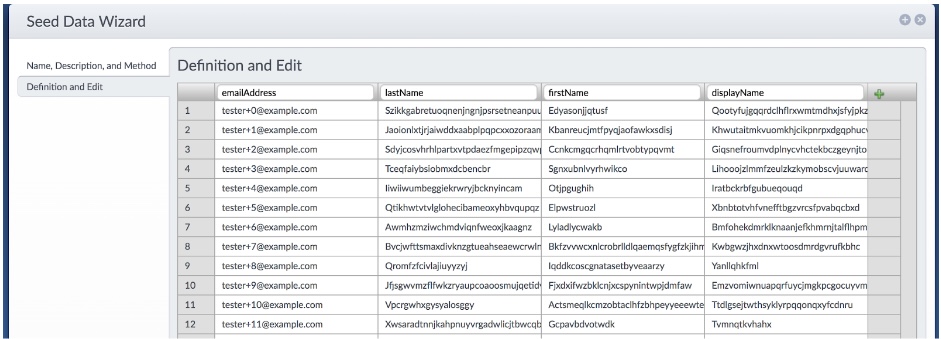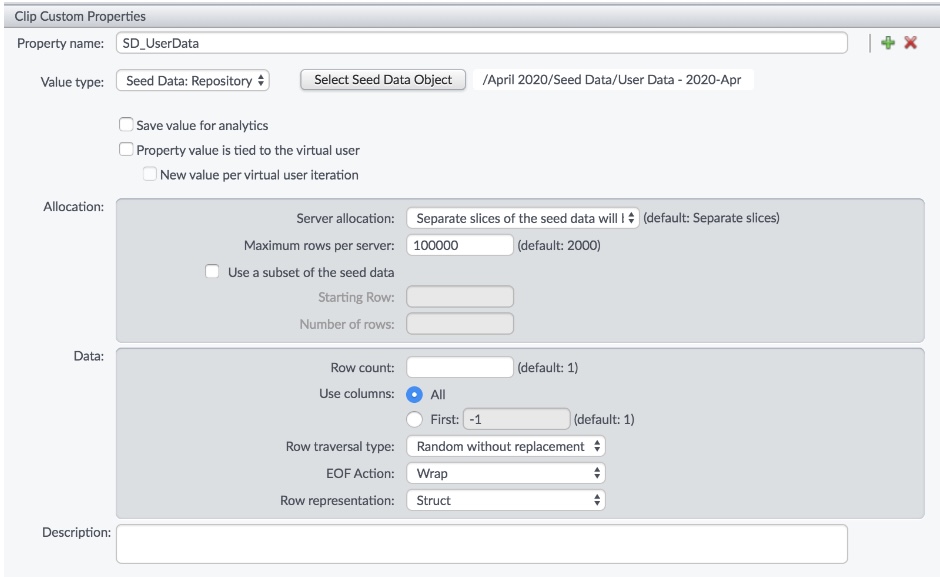Seed files
Registration
In order to perform registrations, it's necessary to generate a unique email and display name each time. The best practice is to use parameters in the clip to generate these randomly. This parameter can then be generated using the CloudTest built-in alphanumeric random generator. The password for registration must also follow the password pattern and complexity that is required.
Best practice 4
Use parameters to generate random unique email and display names
To avoid collision and resulting errors in the API response, the best practice is to keep the length to more than 10 characters. This would help decrease the odds of a collision or error in an hour-long test, for example.
Best practice 5
Keep the length of email and display names more than 10 characters to avoid collisions.
In the example below, the length of the email and display name has been set to 20 characters.

(The GD_NameString property name is a randomly-generated example)
Login
For login, it is necessary to pick from a file with a large amount of pre-populated users in the user database. CloudTest can use a seed data file from an uploaded CSV file, as shown in the example below.

(Seed CSV file for login username with 50K users)
A best practice is to pick a user randomly from this file with no chance of recurring until the whole list has been exhausted. This is called “random without replacement” (see the image below). It's like picking a random book from a shelf and setting the book aside before selecting another random book from the shelf and repeating this until the bookshelf is empty. Then repeating that process with another shelf full of books.
Best practice 6
For load test, pick users randomly without replacement.

(SD_userdata parameter from CSV and login username)
The load test should not be conducted with one user or a small subset of users repeatedly logging in, as this does not simulate a real-world scenario. The load profile on the back-end components is be different for many unique users logging in than it is for a single user or a small subset of users logging in repeatedly.
Updated 5 days ago
